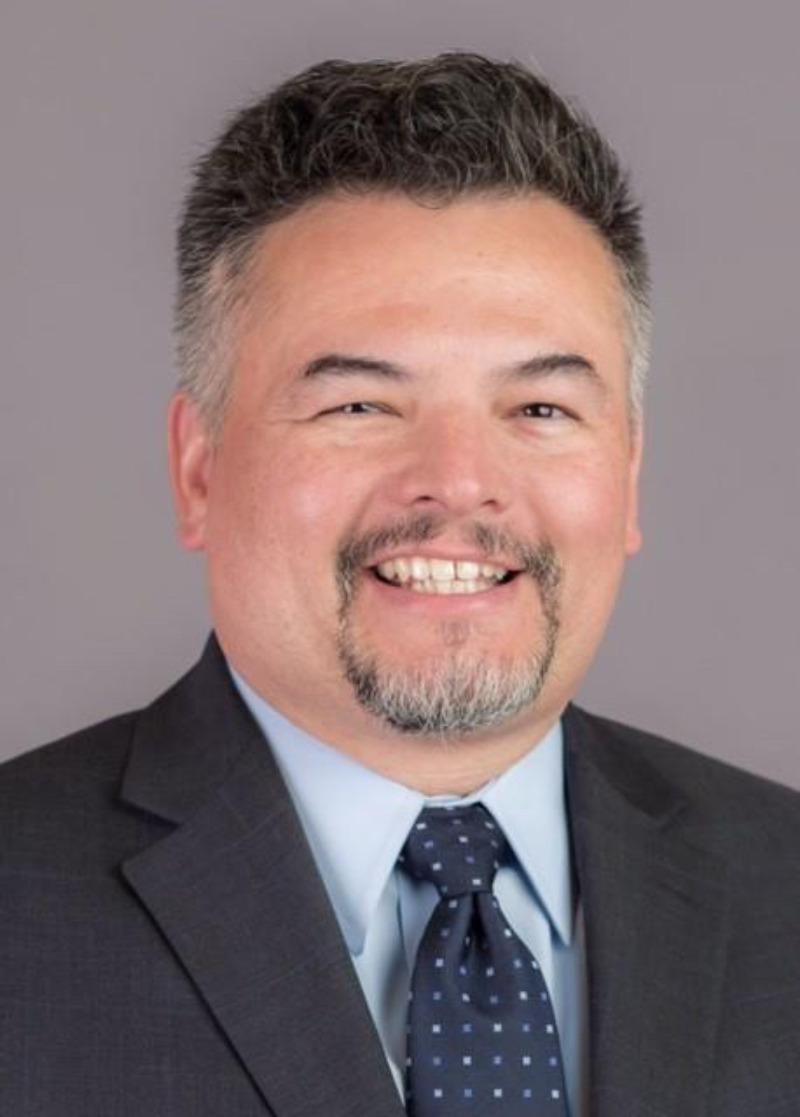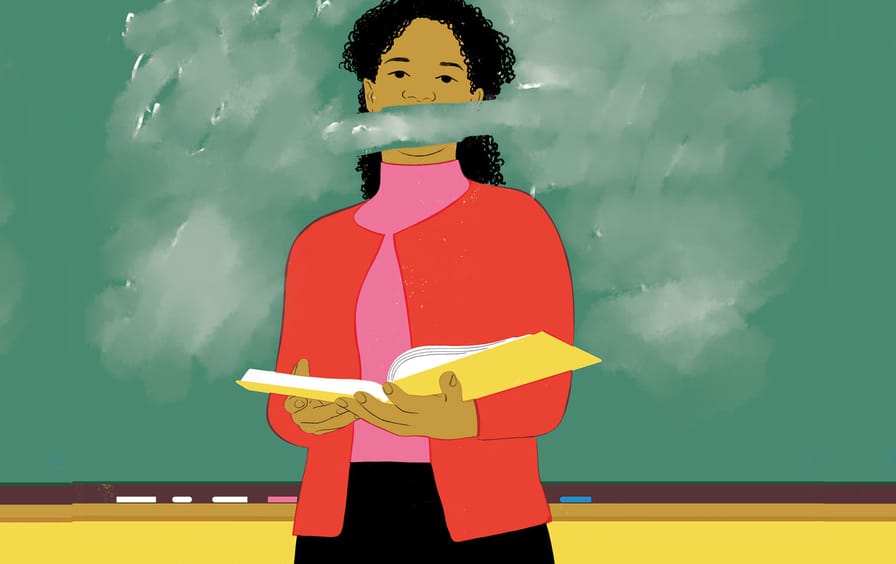Portland Public Schools Superintendent: warrior for corporate reform & against democracy, critical discourse and academic freedom in public schools?
 Update: As of June 5, 2022, it appears that Superintendent Guerrero has canceled his membership in the anti-CRT LinkedIn group described below, thus scrubbing it from his LinkedIn Profile. A screenshot and recording showing his group membership taken prior to the publishing of this post on June 4, 2022 is included below.
Update: As of June 5, 2022, it appears that Superintendent Guerrero has canceled his membership in the anti-CRT LinkedIn group described below, thus scrubbing it from his LinkedIn Profile. A screenshot and recording showing his group membership taken prior to the publishing of this post on June 4, 2022 is included below. Some may be surprised to learn of Portland Public Schools Superintendent Guadalupe Guerrero's true values, which are on display on his LinkedIn page. Guerrero claims that under his leadership, the district is firmly committed to its "foundational and enduring belief in racial equity and social justice." However, his public LinkedIn profile reveals a different reality. One particular LinkedIn group membership exposes his beliefs which undermine the type of pedagogy needed for students to learn to examine issues critically and to become, as the district's Graduate Portrait outlines, "racial equity leaders" who "take part in making our society more just and equitable for people of color" by "develop(ing) agency and advocacy skills to challenge injustice and change oppressive systems in their communities."
The group is private and requires those requesting to join to sign a no-CRT-in-the-classroom pledge. The group is owned by Christopher Andrew, Pennsylvania-based COO at Space Tourism Magazine, and is "meant to be a GLOBAL 'Think Tank' for Educators in regards to New Trends, Best Practices, Mutual Assistance, Leadership and ALL THINGS Academic."
 The group description includes the following pledge:
The group description includes the following pledge:
"We as a united group pledge to carry on the values of Free Speech----WE oppose any and ALL forms of Censorship and Racism inside of schools and outside of school, including any Technology platforms that attempt to muzzle opposing voices, as that clouds the beauty of Free Speech, spirited debate and mutual respect for our brothers and sisters. ***We pledge to focus on the STUDENT and to keep all forms of CRT, bias, politics and/or hate out of the classroom. This allows us to create a peaceful place for quality learning and harmony to occur. All forms of hurtful & harmful Critical Race Theory (CRT) are not permitted in this group. We support the notion of teaching honest, true history and will defend our rights to do so. We give voices to EVERYONE as THAT is the essence of "real" education. TOGETHER we can ADVANCE the world thru Rigor, Merit, Competition & Love. OUR PLEDGE: NO Politics or CRT in the Classroom; EVER."
The only rule listed is, "agree to our NO POLITICS and NO CRT in the Classroom Pledge." Without agreeing to this, membership is not possible.What is CRT and why is it seen as a threat permeating schools?
Crenshaw says:
"Critical race theory is a prism for understanding why decades after the end of segregation, over a century and a half after the end of slavery, after genocide has occurred, why racial inequalities are so enduring."
The New Yorker identifies Christopher Rufo as "the conservative activist (who) invented the conflict over Critical Race Theory." Reporter Benjamin Wallace-Wells writes:
As Rufo eventually came to see it, conservatives engaged in the culture war had been fighting against the same progressive racial ideology since late in the Obama years, without ever being able to describe it effectively. “We’ve needed new language for these issues,” Rufo told me, when I first wrote to him, late in May. “ ‘Political correctness’ is a dated term and, more importantly, doesn’t apply anymore. It’s not that elites are enforcing a set of manners and cultural limits, they’re seeking to reengineer the foundation of human psychology and social institutions through the new politics of race, It’s much more invasive than mere ‘correctness,’ which is a mechanism of social control, but not the heart of what’s happening. The other frames are wrong, too: ‘cancel culture’ is a vacuous term and doesn’t translate into a political program; ‘woke’ is a good epithet, but it’s too broad, too terminal, too easily brushed aside. ‘Critical race theory’ is the perfect villain,” Rufo wrote.
He thought that the phrase was a better description of what conservatives were opposing, but it also seemed like a promising political weapon. “Its connotations are all negative to most middle-class Americans, including racial minorities, who see the world as ‘creative’ rather than ‘critical,’ ‘individual’ rather than ‘racial,’ ‘practical’ rather than ‘theoretical.’ Strung together, the phrase ‘critical race theory’ connotes hostile, academic, divisive, race-obsessed, poisonous, elitist, anti-American.”
I have spent months investigating the structure of political education in three Portland-area school districts: Tigard-Tualatin School District, Beaverton School District, and Portland Public Schools. I have cultivated sources within each district and obtained troves of internal documents related to the curriculum, training, and internal dynamics of these institutions. . .
The results are predictable. By perpetuating the narrative that America is fundamentally evil, steeping children in race theory, and lionizing the Portland rioters, they have consciously pushed students in the direction of race-based 'revolution.'"
Guadalupe Guerrero has taken part in and is a proponent of such turnaround initiatives. His LinkedIn profile lists his accomplishments in this area. As district leader in San Francisco prior to coming to Portland, he led reform and turnaround efforts. Under his leadership, PPS has ramped up its corporate rhetoric, public-private partnerships, charter school funding, outsourcing of underpaid, non-represented labor, and initiatives to standardize teaching and curriculum--all hallmarks of the neoliberal agenda for public schools.
The architects of this so-called war on CRT make no secret of the fact that they fear a revolution that would dissolve the hand that feeds them: capitalism. In their commentary on the Koch-funded Heritage Foundation website entitled, "Purging Whiteness To Purge Capitalism," Mike Gonzalez and Jonathan Butcher write, "It shouldn’t surprise us . . . that many of the intellectuals who originated the concepts of 'whiteness,' 'white studies,' and 'white privilege' were concerned with uniting the American working class, so that it could overthrow the capital-owning bourgeoisie."
On the same Foundation's page in his report, Rufo expresses the real fear which lies beneath the assault on educational institutions in the name of CRT: "Although critical race theory has sought in some cases to distinguish itself from Marxism, the leading policy proposals from critical race theorists are focused on the race-based redistribution of wealth and power."
Rufo adds:
"An equity-based form of government would mean the end not only of private property but also of individual rights, equality under the law, federalism and freedom of speech. These would be replaced by race-based redistribution of wealth, group-based rights, active discrimination and omnipotent bureaucratic authority."
The fear of loss of power, wealth and white male, Eurocentric cultural hegemony is foundational to the war on CRT. As Rufo sees it, "Critical race theory prescribes a revolutionary program that would overturn the principles of the Declaration and destroy the remaining structure of the Constitution."
"The Lockheed training had evidently included an exercise in which the executives had explained in writing what they hoped to get out of the session. . . One executive had written, 'I won’t get replaced by someone who is a better full-diversity partner.' Another had said, 'Evolving the white male culture so future generations won’t be stereotyped.'"
Witch Hunt Politics
The site urges: "Do you have teachers who attempt to inject politics/ideology into the classroom? If so, please report them to us. We will investigate, and if found to be accurate we will factor it into our Power Ranking system."
For K-12 schools, the page offers a list of five "quick and sure ways to tell if something is inherently wrong at your school district:"
1. Your school board meetings have turned into yelling matches between 2 distinct sides.
2. You see bias reading materials (primarily CRT) listed in a Diversity/DEI Reading list, teacher training books/manuals and/or other areas on a DEI webpage, library or classroom(s)? Either directly using the term Critical Race Theory (CRT) or masking it.
3. You feel a new type of “tension” on school grounds and in the classroom that was not present in the past.
4. Teachers notice that some groups of students are noticeably quiet and not as engaged as before. If DEI/CRT is new to the school, look for that this school year. Sadly, you can expect that.
5. Censorship is being applied on school grounds, local school district social media groups and/or School Board Meetings. If parents are being cut off, and not allowed to speak. Something is clearly wrong.
Teaching is inherently political
Scholar, professor and member of the National Academy of Education, Sonia Nieto, whose research has focused on multicultural education, teacher education, literacy, and the education of students of culturally and linguistically diverse backgrounds, has written extensively on the topic of equity and justice in public schooling. She says that "In this increasingly standardized time, how one defines teaching has important implications for both public education and professional development. "She asserted--sixteen years ago, but with contemporary relevancy--that "the current definition of 'highly qualified teacher' is insufficient because it fails to take into account the sociopolitical context of education, which includes the tremendous diversity of language, social class, ethnicity, and race, among other differences, that are a fact of life in many school systems in our nation."
She makes the case that "teaching is inherently political work."
While PPS claims to be committed to shaping students into "compassionate critical thinker(s), able to collaborate and solve problems, and be prepared to lead a more socially just world," the district's actions show otherwise. Its move to a standardized, narrow, racist curriculum and micromanaged curriculum-based professional learning accompanied by ongoing and punitive evaluation of teachers, clamps down on educators' ability to use responsive, consciousness-raising pedagogy in their classrooms. Truly allowing students to examine multiple viewpoints through the lens of race, power, gender, and class is apparently seen as threatening by the district's leaders, echoing the fear that wealthy white elites harbor of a societal power and wealth redistribution.
Social justice, as Nieto defines it, is "a fundamentally political project because it is about power: who has it, who makes the key decisions that can improve people’s lives—or not—and who benefits from these decisions." She says, social justice is also "a quintessentially democratic project because it promotes inclusiveness and fairness. It is about understanding education and equal access to it as civil rights."
Portland, now what?
Clearly, a commitment to "no politics in the classroom" is in itself political. When top leaders of a district which espouses a commitment to racial equity and social justice, belong to a professional group that aims to stifle critical conversations and therefore pivotal learning opportunities in schools, we have a problem. The discourse that runs through the LinkedIn group is not accessible to those who have not joined by promising to disallow critical, social justice-focused pedagogy in schools. But its members, like its founder, are obviously dedicated to the philosophy which underpins the witch hunts so commonplace these days against those ensuring democratic values permeate public education. And this is a cause for alarm.Is Portland, a city with a distinctly progressive flair and tradition, willing to tolerate leaders who have pledged to be vigilantes dedicated to identifying "revolutionaries" in classrooms and instilling an atmosphere of fear and compliance by such tactics as intimidation, silencing, reporting of activities perceived as a threat to the conservative status quo, and retaliating against dissent? Parents, educators, what say you?



Comments
Post a Comment